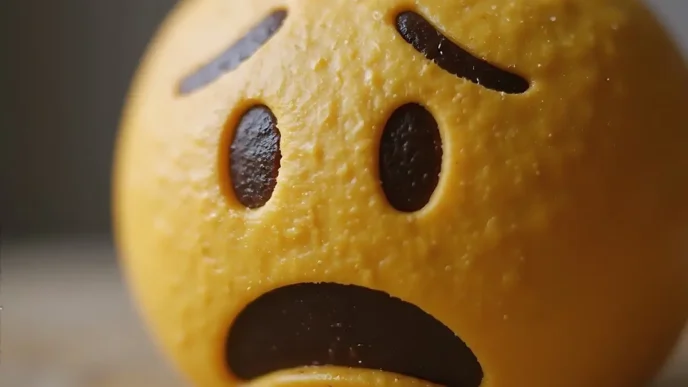A heated dispute between Thailand’s Commerce Minister Pichai Naripthaphan and Agriculture and Cooperatives Minister Narumon Pinyosinwat over a rejected shipment of contaminated durian has exposed tensions within the government, raising concerns about the country’s lucrative export market to China. The clash, which erupted during a Cabinet meeting on Tuesday, centred on 64 tonnes of durian rejected by Chinese authorities last month after detecting traces of Basic Yellow 2, a carcinogenic dye. With China being the largest market for Thai durian—worth billions of baht annually—the incident has sparked debates over regulatory oversight, export standards, and potential economic fallout.
The argument, which required intervention from Prime Minister Paetongtarn Shinawatra, highlighted differing priorities between the two ministries at a time when Thailand’s agricultural exports face increasing scrutiny. While Pichai questioned why the contaminated durians were not immediately destroyed, Narumon defended the need to follow procedural guidelines for disposal. The public disagreement, though later downplayed by Pichai as “nothing,” underscores deeper systemic issues in Thailand’s export testing and certification processes, as well as the political pressures surrounding one of the kingdom’s most iconic agricultural products.
A Cabinet Room Confrontation
The Cabinet meeting on 18 March saw tempers flare when Prommin Lertsuridej, secretary to the Prime Minister, reported the rejection of the durian shipment by China due to contamination. He urged both the Commerce and Agriculture ministries to strengthen testing protocols to prevent future incidents. Pichai’s pointed query about the delay in destroying the rejected batch drew a sharp response from Narumon, who insisted that proper procedures must be adhered to. The exchange escalated until Prime Minister Paetongtarn stepped in, directing the ministers to resolve the issue privately and report back to the Cabinet.
Speaking to reporters on Wednesday, Pichai sought to minimise the incident, stating, “It was nothing. I was just concerned about exports, and the matter has been cleared up and discussed thoroughly.” He also revealed plans to meet durian farmers in Chanthaburi, a key durian-producing region in eastern Thailand, later that day to address export procedures. Narumon, however, has not publicly commented on the spat, leaving observers to speculate on lingering friction between the two ministries.
Contamination and Corruption Allegations
The rejected durian shipment has not only strained inter-ministerial relations but also triggered a broader investigation into potential misconduct within the Agriculture Department. Rapeepat Chansriwong, the department’s director-general, was transferred to an inactive post last Friday following allegations of bribe-taking related to contamination testing for Basic Yellow 2. Durian exporters claimed that a company approved by Rapeepat demanded testing fees despite the absence of official guidelines or announcements on testing procedures from the department.
While no evidence has yet confirmed these allegations, the incident has fuelled public and industry concerns about transparency and accountability in Thailand’s agricultural export sector. If substantiated, the claims could point to systemic corruption or negligence, potentially undermining confidence in Thai durian among international buyers. For now, the investigation remains ongoing, and officials have yet to release further details on the scope or findings.
Economic Stakes in the Durian Trade
Durian, often dubbed the “king of fruits” in South East Asia, is a cornerstone of Thailand’s agricultural economy, with China accounting for the vast majority of export demand. Valued at several billion baht annually, the durian trade has become a critical source of income for thousands of farmers, particularly in regions like Chanthaburi and Rayong. Thailand’s position as the world’s leading durian exporter has been bolstered by free trade agreements and growing Chinese consumer appetite for the pungent fruit.
However, incidents like the recent contamination scandal threaten to derail this economic success story. China’s stringent import standards, including zero-tolerance policies for contaminants like Basic Yellow 2, mean that even isolated cases can lead to significant losses. The rejection of 64 tonnes of durian may seem minor in isolation, but it serves as a stark reminder of the fragility of Thailand’s export-driven agricultural sector. If further shipments are rejected or if Chinese authorities impose stricter regulations, the financial impact on farmers and exporters could be substantial.
Beyond immediate economic losses, there is also the risk of reputational damage. Thai durian has built a strong brand in China, often marketed as a premium product. Any perception of lax safety standards or contamination risks could erode consumer trust, potentially opening the door for competitors like Malaysia or Vietnam to capture market share. Analysts suggest that while a single incident is unlikely to trigger a long-term shift, repeated failures to address quality control could have lasting consequences.
Regulatory Challenges and Policy Responses
The durian contamination incident has reignited discussions about the adequacy of Thailand’s export testing and certification systems. Basic Yellow 2, the dye detected in the rejected shipment, is a known carcinogenic substance banned in food products under both Thai and Chinese regulations. Its presence in durian raises questions about how and where the contamination occurred—whether at the farm level, during processing, or through supply chain mishandling.
Critics argue that the Agriculture Department’s testing protocols are inconsistent and lack transparency, as evidenced by the allegations against Rapeepat. While the department has mechanisms in place to screen for contaminants, enforcement appears uneven, particularly for smaller exporters who may lack the resources to comply with rigorous standards. Additionally, the absence of clear guidelines on testing fees and procedures, as highlighted by exporters’ complaints, points to bureaucratic inefficiencies that could exacerbate risks.
In response, there are calls for the government to overhaul its agricultural export framework. Proposed measures include mandatory pre-export testing for all durian shipments, greater investment in laboratory infrastructure, and stricter penalties for non-compliance. Some industry stakeholders also advocate for public-private partnerships to fund training programmes for farmers on safe agricultural practices, such as avoiding prohibited chemicals or dyes.
However, implementing these reforms will not be without challenges. Thailand’s agricultural sector is highly fragmented, with many small-scale farmers operating independently or through informal networks. Ensuring compliance across such a diverse landscape requires significant resources and coordination between multiple government agencies—a task complicated by the political tensions evident in the recent Cabinet clash.
Broader Implications for Thailand-China Relations
The durian export issue also carries geopolitical undertones, given the importance of trade in Thailand-China relations. Beijing has emerged as a key economic partner for Bangkok in recent years, with agricultural exports forming a vital component of bilateral ties. Durian, in particular, has become a symbol of this relationship, often featured in trade fairs and diplomatic exchanges.
Any disruption to the durian trade could, if mishandled, strain these ties at a time when Thailand is navigating complex regional dynamics. While there is no indication that China views the contamination incident as a deliberate lapse, repeated quality issues might prompt Beijing to demand stricter oversight or even impose temporary import restrictions. Such measures, even if temporary, could have a ripple effect on other Thai agricultural exports to China, including rice, rubber, and tropical fruits.
On the domestic front, the government faces pressure to balance economic imperatives with public health and safety concerns. Prime Minister Paetongtarn, who has only recently assumed leadership, may find her administration’s handling of the durian scandal a litmus test for its broader agricultural and trade policies. Failure to address the root causes of contamination risks alienating both farmers, who depend on export revenues, and urban consumers, who demand accountability from their leaders.
Looking Ahead: A Path to Resolution?
As Pichai meets with durian farmers in Chanthaburi, the government has an opportunity to demonstrate its commitment to resolving the crisis. Direct engagement with stakeholders could help identify gaps in the supply chain and rebuild trust among exporters. At the same time, the investigation into Rapeepat’s alleged misconduct must be conducted transparently to restore public confidence in the Agriculture Department’s oversight.
For now, the economic and political stakes surrounding Thai durian exports remain high. If reforms are implemented effectively, Thailand could strengthen its position as a global leader in durian trade while safeguarding its relationship with China. However, if the issues of contamination and regulatory oversight persist, the fallout could extend far beyond a single rejected shipment, impacting livelihoods and diplomatic ties alike.
The clash between Pichai and Narumon, though resolved for the moment, serves as a microcosm of the broader challenges facing Thailand’s agricultural export sector. As the government grapples with these complexities, the pungent aroma of durian may well linger as a reminder of the delicate balance between economic ambition and regulatory responsibility.














